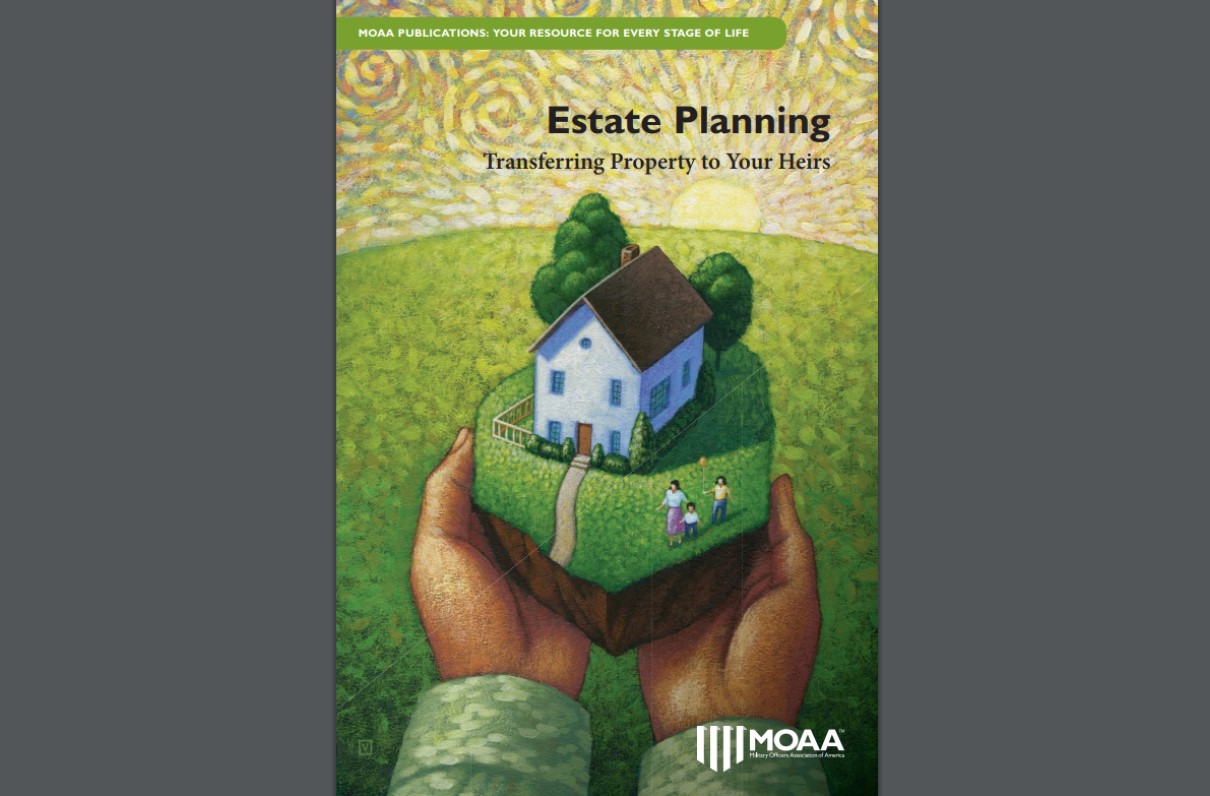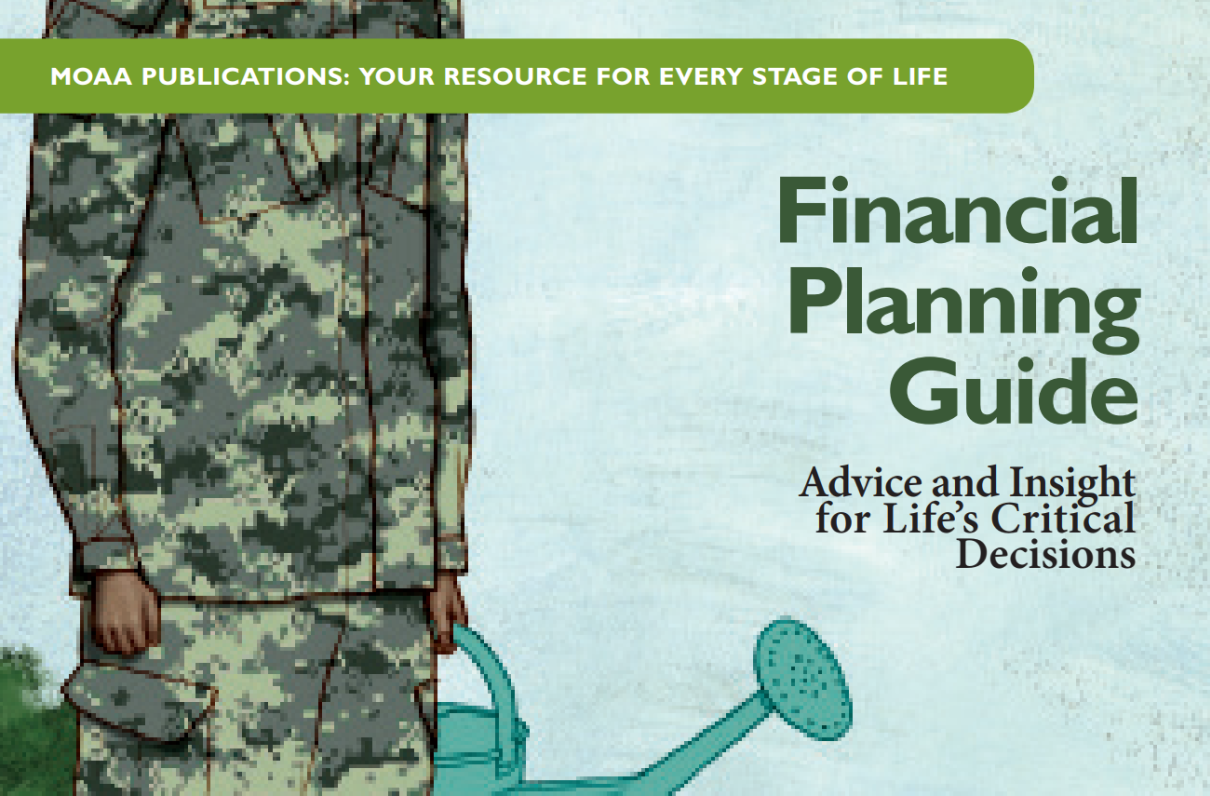Everyone — whether married or single, with or without minor children, multimillionaires, or those of more modest means — should have at least a basic estate plan drafted by a skilled estate-planning attorney. A coherent estate plan helps to ensure orderly distribution of your assets, protects minor children, plans for potential incapacity, and avoids unnecessary — and costly — probate fees and estate taxes.
Once in place, the plan should be reviewed periodically (at least every five years) or anytime a major life event occurs, including marriage, divorce, or remarriage; birth or adoption of a child; substantial change in financial assets; moving to a new state or overseas; and retirement.
MOAA is here to help you get started on your estate plan. Download the Estate Planning guide today!
For MOAA Premium and Life Members, benefits and financial counseling with MOAA staff experts complement the process of reading this publication and understanding the key components of financial planning. Also, the surviving spouses of deceased MOAA Life and Premium members become MOAA members in their own right upon their spouse's passing, making them eligible for all MOAA member benefits, including financial counseling.




